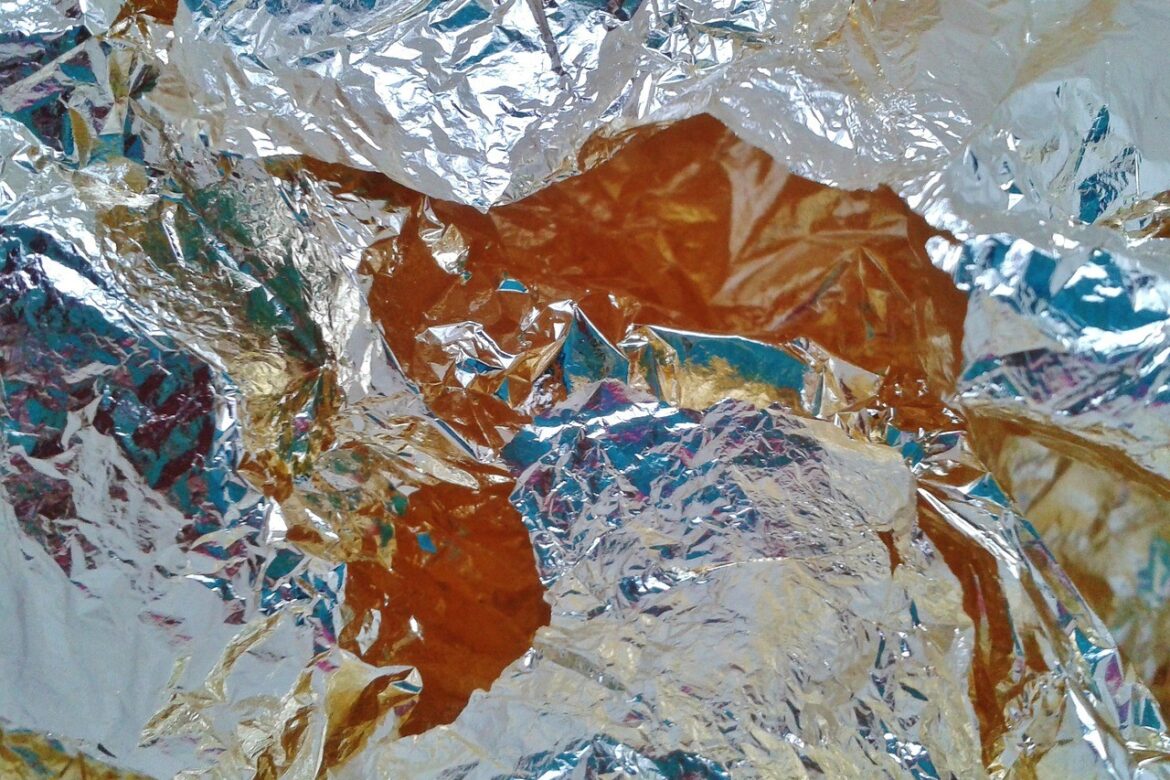By Karen Morris
We are surrounded by Aluminium every day, and it does exist naturally in the environment… but did you know it’s harmful to your body?
This cheaply produced metal has dozens of commercial uses – we find it in aluminium foil for cooking and storage, in antiperspirants used to reduce sweating, cooking utensils like pots, pans and other kitchen wear, processed foods and baking powders, tap water and even in vaccines and other medications.
Aluminium has been found to accumulate in the kidneys, brain, lungs, liver and thyroid, causing oxidative stress and attacking the central nervous system.
There is ongoing research about the link between aluminium exposure and Alzheimer’s disease. While no definitive causal relationship has been established, some studies suggest that high levels of aluminium in the brain may contribute to neurodegenerative changes seen in Alzheimer’s patients.
But the damage caused by Aluminium can also be seen to inhibit the uptake of neurotransmitters such as dopamine, norepinephrine, and 5-hydroxytryptamine which contribute to mood disorders, anxiety, insomnia and cognitive disorders.
It sounds pretty scary. doesn’t it?
How to identify Aluminium toxicity in the body
Some signs and symptoms of aluminium toxicity can be non-specific and vary, but may include:
- Headaches
- Frequent colds
- Dry skin
- Gastrointestinal problems
- Mood disorders
- Confusion
- Insomnia
- Muscle weakness
- Seizures
- Speech problems
- Slow growth in children
Laboratory tests such as hair tissue mineral analysis can measure aluminium levels in the blood, urine, hair, or tissues to confirm toxicity.
How can I safely detox from aluminium?
- Firstly, avoid processed and packaged foods containing foil. Avoid using cans, tins, and cookware and check your beauty products. Opt for natural deodorants instead of antiperspirants. Choose sea salt or Himalayan salt instead of table salt. Check your baking powders and medications.
- Natural substances that can aid detox are Chlorella and cilantro (coriander). Eat garlic, onion and ginger as these are also powerful antioxidants.
- Include a high-dose Vitamin C powder; a potent antioxidant that aids in reducing oxidative stress and enhancing the excretion of aluminium.
- Glutathione is a powerful antioxidant that helps bind aluminium and other heavy metals, facilitating their removal through urine.
- Quercetin is a flavonoid with antioxidant properties that can help protect cells from aluminium-induced oxidative damage.
- N-acetylcysteine (NAC) is a precursor to glutathione, NAC helps increase glutathione levels in the body, supporting the detoxification process.
- 5-Hydroxytryptophan (5-HTP) is primarily known for its role in serotonin production and mood regulation and also supports overall detoxification pathways.
- Curcumin (Turmeric powder) is also a natural antioxidant that has been shown to protect against aluminium-induced damage, modulating the extent of oxidative stress and combatting the beta-amyloid plaques associated with Alzheimer’s disease.
- Make sure you drink plenty of purified, filtered water to hydrate and support kidney function and the excretion of aluminium.
- Include a healthy diet rich in fruits, vegetables and whole grains to support overall detoxification and health.
- Regular monitoring: if you suspect high exposure to aluminium, regular testing and consultation with your health care professionals is essential.
Understanding the sources of aluminium exposure and taking proactive steps to detoxify can significantly reduce the risk of aluminium toxicity and its associated health issues.
Here at Herbs Online Shop, we are dedicated to helping you stay healthy and well, so please do call (02) 9555 5117 or fill out our contact form and we’ll get back to you as soon as possible.


